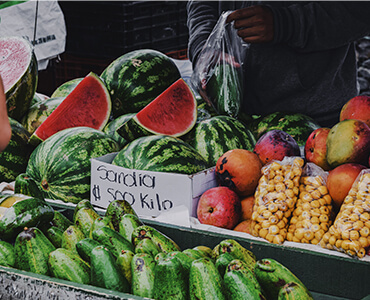الزراعة

Farming: Cultivating Sustainability and Nourishing Communities
Farming, often referred to as agriculture, is the backbone of civilization, providing sustenance, livelihoods, and economic stability to communities around the world. From small family-owned operations to large-scale industrial farms, agriculture encompasses a diverse range of practices aimed at producing food, fiber, and fuel to meet the needs of a growing global population. Let's explore the multifaceted world of farming and its crucial role in fostering sustainability and nourishing communities.
A Rich History of Agriculture
The practice of farming dates back thousands of years, with early humans transitioning from a nomadic hunter-gatherer lifestyle to settled agricultural communities. The invention of agriculture revolutionized human society, enabling the cultivation of crops and the domestication of animals for food, labor, and resources.
Throughout history, farming techniques have evolved in response to environmental conditions, technological advancements, and cultural traditions. From the invention of the plow and the harnessing of animal power to the development of irrigation systems and the use of synthetic fertilizers, farmers have continually adapted their methods to maximize productivity and efficiency.
Sustainable Agriculture: Balancing Productivity and Conservation
In recent decades, there has been a growing recognition of the importance of sustainable agriculture practices that prioritize environmental stewardship, social equity, and economic viability. Sustainable farming techniques aim to minimize the negative impacts of agriculture on the environment while maximizing long-term productivity and resilience.
Key principles of sustainable agriculture include:
Soil Health: Protecting and enhancing soil fertility through practices such as crop rotation, cover cropping, and organic matter management.
Water Conservation: Efficiently managing water resources through drip irrigation, rainwater harvesting, and soil moisture monitoring to minimize water wastage and ensure adequate supply.
Biodiversity Conservation: Preserving and enhancing biodiversity on farmland through the use of agroforestry, hedgerows, and habitat restoration to support beneficial insects, pollinators, and wildlife.
Integrated Pest Management: Implementing strategies to control pests, weeds, and diseases using a combination of cultural, biological, and mechanical methods to reduce reliance on chemical pesticides.
Resource Efficiency: Optimizing resource use and minimizing waste through practices such as precision agriculture, nutrient management, and energy conservation.
By adopting sustainable farming practices, farmers can protect natural resources, mitigate climate change, and maintain healthy ecosystems for future generations.
Supporting Local Food Systems
In addition to environmental benefits, farming plays a vital role in supporting local economies and food systems. Small-scale family farms and community-supported agriculture (CSA) initiatives contribute to food security, rural development, and cultural preservation by providing fresh, locally grown produce to consumers.
By purchasing food from local farmers markets, farm-to-table restaurants, and community-supported agriculture programs, consumers can support local farmers, reduce food miles, and connect with the people and processes behind their food.
Challenges and Opportunities
Despite its importance, farming faces numerous challenges in the 21st century, including climate change, water scarcity, soil degradation, and market volatility. However, these challenges also present opportunities for innovation, collaboration, and adaptation.
Technological advancements such as precision agriculture, genetic engineering, and data analytics hold promise for increasing productivity, reducing environmental impacts, and improving resilience in the face of climate change.
Furthermore, there is a growing movement towards agroecology, regenerative agriculture, and organic farming practices that prioritize soil health, biodiversity, and ecosystem services.
Conclusion
Farming is not merely a means of production; it is a way of life deeply rooted in culture, tradition, and stewardship of the land. By embracing sustainable practices, supporting local food systems, and fostering innovation, farming can continue to nourish communities, preserve natural resources, and cultivate a brighter future for generations to come.
As consumers, advocates, and policymakers, we all have a role to play in shaping the future of agriculture and building a more resilient, equitable, and sustainable food system.

